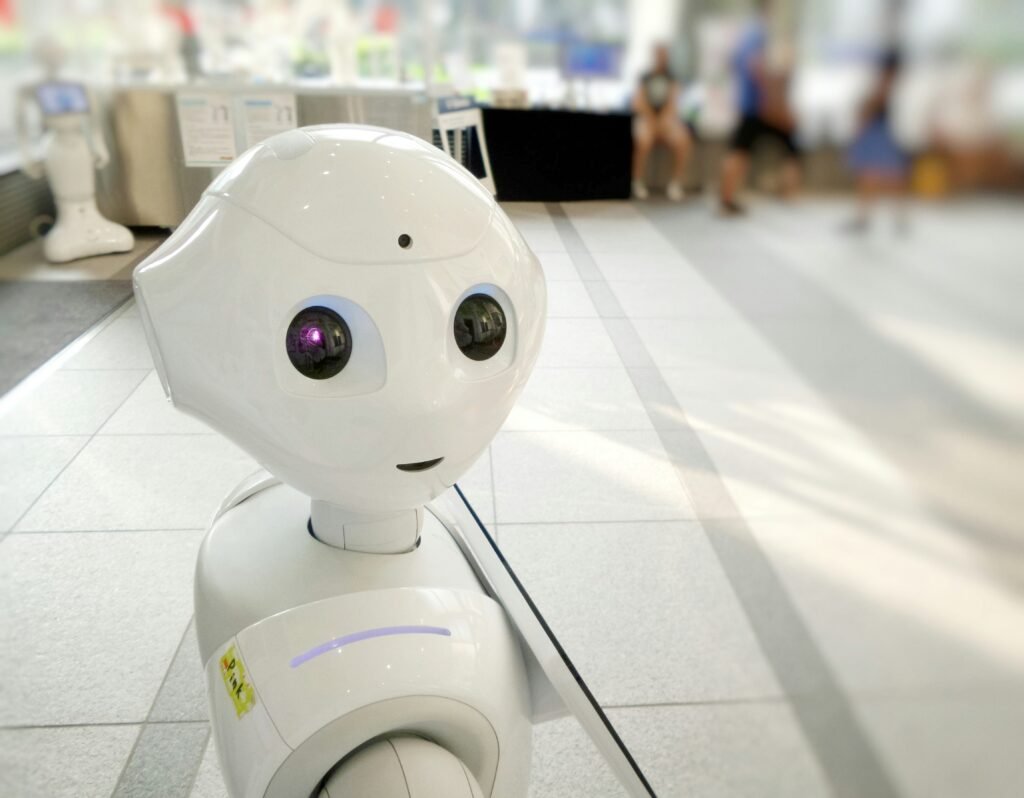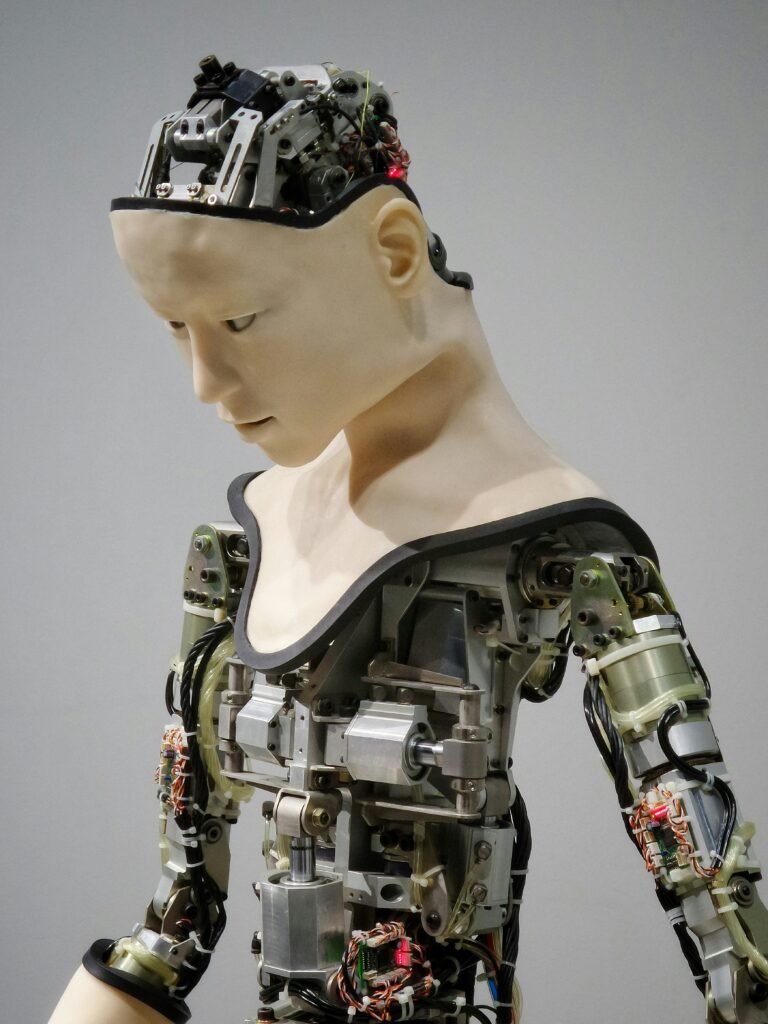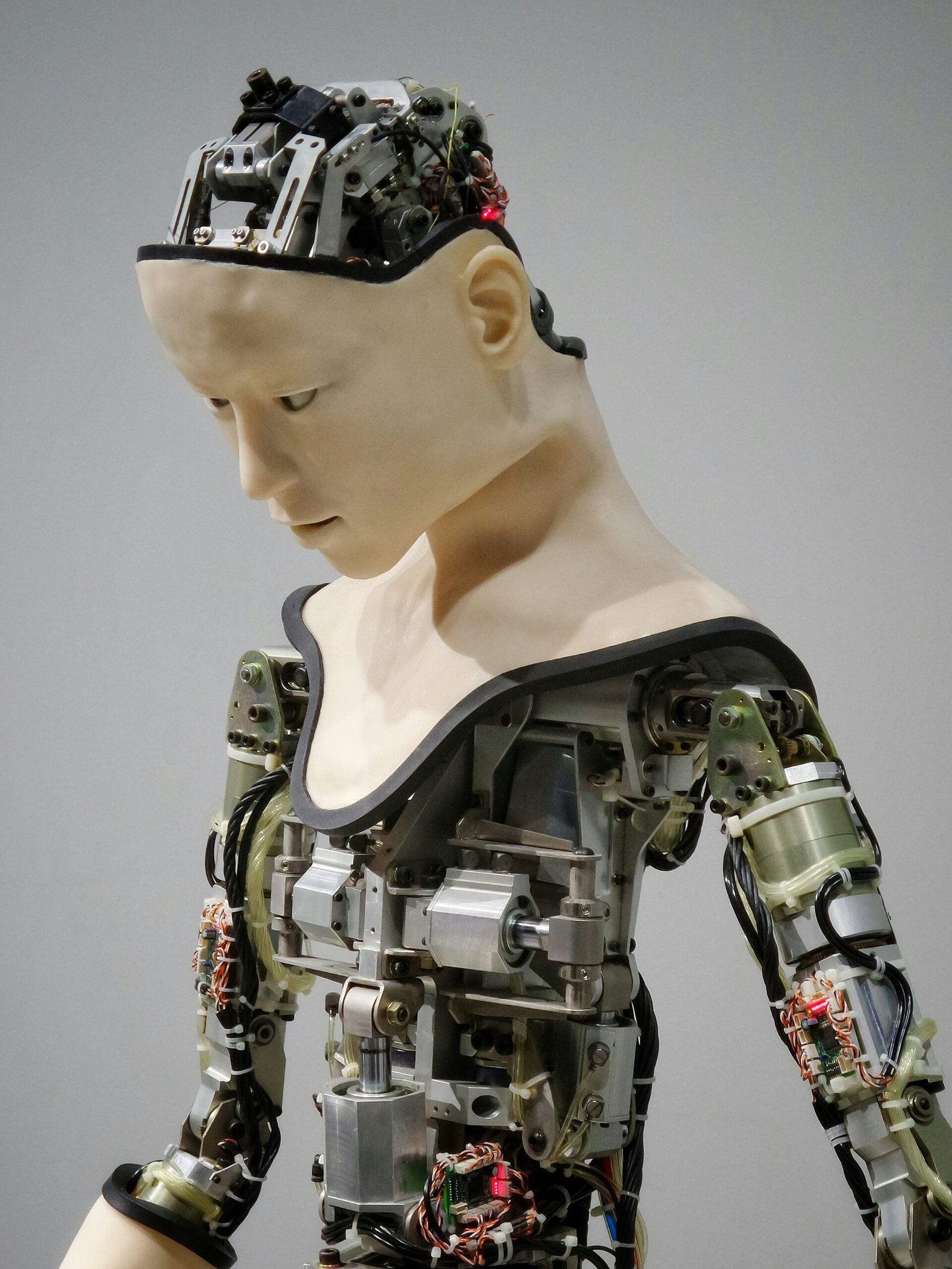Get ready to explore the fascinating world of Artificial Intelligence (AI) at the upcoming AI Symposium hosted by Portland Community College. From October 18th to October 20th, industry experts will gather at the PCC Cascades Campus in North Portland to discuss the impact of AI on various aspects of our lives, including education, industry, and everyday life. The event will feature engaging presentations by renowned speakers such as Dr. Brandeis Marshall, the CEO of DataedX Group, and Melissa Evers, the Vice President at Software and Advanced Technology Group. Whether you’re a tech enthusiast or just curious about the latest AI advancements, this symposium is free and open to the public, with both virtual and in-person options available. Don’t miss out on this opportunity to gain insights into the world of AI and its influence on the modern world. Register now online and mark your calendars for this exciting event!
Symposium Overview
The Symposium on Artificial Intelligence (AI) will be held from October 18th to October 20th at the Portland Community College (PCC) Cascades Campus in North Portland. This three-day event aims to explore the impact of AI on various aspects of our lives, including education, industry, everyday life, ethics, global challenges, data analytics, and cybersecurity. The symposium will feature renowned speakers who will share their expertise and insights on the subject. Registration for the event is free and open to the public, with both virtual and in-person options available.
Dates and Location
The AI Symposium will take place from October 18th to October 20th at the PCC Cascades Campus in North Portland. The campus is conveniently located at 705 North Killingsworth Street, making it easily accessible for attendees.
Event Description
The Symposium on Artificial Intelligence aims to provide a comprehensive overview of the impact of AI on various aspects of our lives. The event will feature presentations, panel discussions, and interactive sessions led by industry experts, researchers, and thought leaders. Participants will gain a deeper understanding of AI technology, its applications, benefits, and challenges, and its implications for the future.
Featured Speakers
The symposium boasts an impressive lineup of speakers who are at the forefront of AI research and innovation. Dr. Brandeis Marshall, founder, and CEO of DataedX Group, will deliver a keynote address on the role of AI in education. Melissa Evers, Vice President at Software and Advanced Technology Group, will discuss AI’s impact on industry. These speakers, along with other industry leaders, will provide valuable insights and perspectives on the subject.
Registration
Registration for the AI Symposium is now open and free for all participants. To register, simply visit the event’s website and follow the instructions. Attendees can choose between virtual or in-person attendance. This flexibility allows individuals from around the world to join the symposium and benefit from the knowledge shared by the speakers. Don’t miss out on this exciting opportunity to explore the world of AI and its potential impact on our lives. Register now to secure your spot!
Exploring AI in Education
The Role of AI in the Education System
AI has the potential to revolutionize the education system by enhancing teaching and learning methods. With AI-powered tools, educators can personalize learning experiences, identify students’ individual needs, and provide targeted interventions. AI can assist in automating administrative tasks, freeing up teachers’ time to focus on student engagement and instruction. Furthermore, AI can facilitate real-time feedback, adaptive assessments, and intelligent tutoring systems, all of which contribute to more effective and efficient learning experiences.
AI Tools for Teaching and Learning
AI-powered tools such as intelligent tutoring systems, virtual reality simulations, and adaptive learning platforms are transforming the way students learn and teachers teach. Intelligent tutoring systems can provide personalized feedback, offer additional resources, and adapt the learning content to the student’s individual pace and style. Virtual reality simulations enable students to explore complex concepts through immersive experiences, enhancing their understanding and retention. Adaptive learning platforms utilize AI algorithms to analyze student performance data and deliver customized content and assessments based on their strengths and weaknesses.
Benefits and Challenges of AI in Education
The integration of AI in education offers numerous benefits, including personalized learning, improved student engagement, and enhanced efficiency. AI-powered tools can provide adaptive support, accommodate different learning styles, and promote self-paced learning. However, the implementation of AI in education also presents challenges, such as ensuring equitable access to technology, addressing privacy concerns, and maintaining human connection in the learning process. It is essential to strike a balance between the benefits of AI and the ethical considerations associated with its use in education.

AI’s Impact on Industry
Revolutionizing Manufacturing with AI
AI is transforming the manufacturing industry by enabling automation, predictive maintenance, and quality control. AI-powered robots and machines can perform repetitive tasks with precision and efficiency, reducing human error and increasing productivity. Predictive maintenance algorithms analyze data from sensors to detect potential equipment failures, allowing for proactive maintenance and minimizing downtime. AI can also improve quality control by analyzing data patterns and identifying anomalies, preventing defective products from reaching consumers.
AI in Healthcare and Medicine
In the healthcare sector, AI is revolutionizing patient care, diagnosis, and drug discovery. AI algorithms can analyze vast amounts of patient data to identify patterns and trends, leading to more accurate diagnoses and personalized treatment plans. AI-powered medical imaging systems can detect early signs of diseases, helping healthcare professionals make informed decisions. Additionally, AI can aid in drug discovery by analyzing genomic data, predicting drug interactions, and accelerating the research and development process.
AI and the Future of Work
The integration of AI technologies in the workplace is reshaping the nature of work and job roles. While AI has the potential to automate routine and repetitive tasks, it also creates new job opportunities and requires individuals to develop new skills. AI can augment human capabilities, enabling workers to focus on problem-solving, creativity, and complex decision-making. To harness the potential of AI in the future of work, it is crucial to invest in upskilling and reskilling programs and create a supportive environment for workers to adapt to these changes.
AI in Everyday Life
AI in Personal Assistants and Smart Devices
Personal assistants and smart devices powered by AI have become an integral part of everyday life. Virtual assistants like Siri, Alexa, and Google Assistant utilize natural language processing and machine learning algorithms to understand and respond to user commands. These AI-powered assistants can perform a wide range of tasks, such as setting reminders, answering questions, playing music, and controlling smart home devices. The integration of AI in personal assistants and smart devices enhances convenience, efficiency, and connectivity in our daily lives.
AI in Transportation
AI has significant implications for the transportation sector, from autonomous vehicles to intelligent traffic management systems. Self-driving cars, trucks, and drones leverage AI algorithms to perceive their environment, make decisions, and navigate safely. AI-powered traffic management systems analyze real-time data to optimize traffic flow, reduce congestion, and enhance transportation efficiency. The integration of AI in transportation not only enhances safety and sustainability but also opens up possibilities for innovative mobility solutions.
AI and Social Media
AI plays a crucial role in social media platforms, enabling personalized content, user recommendations, and content moderation. AI algorithms analyze user data and behavior to deliver customized content tailored to individual preferences. These algorithms also power recommendation systems, suggesting relevant products, videos, or articles based on user interactions. Additionally, AI algorithms are utilized for content moderation, helping identify and remove offensive or inappropriate content, ensuring a safer and more inclusive social media environment.

Ethical Considerations in AI
Bias and Discrimination in AI Algorithms
One of the key ethical considerations in AI is the potential for bias and discrimination in AI algorithms. AI systems learn from historical data, and if that data reflects biases or prejudices, the AI algorithms may perpetuate and amplify those biases. It is essential to address bias in AI algorithms to ensure fairness, equality, and inclusivity. This requires diverse and representative datasets, algorithmic transparency, and ongoing monitoring and auditing of AI systems to identify and mitigate biases.
Privacy and Security Concerns
The proliferation of AI technologies raises concerns about privacy and data security. AI systems rely on vast amounts of personal data to function effectively, and ensuring the privacy and protection of this data is crucial. It is essential to establish robust data governance frameworks, including data anonymization, encryption, and secure storage practices. Additionally, clear consent mechanisms, transparent data usage policies, and rigorous data protection regulations are necessary to address privacy concerns associated with AI technologies.
Ensuring Ethical AI Development
Developing AI ethically requires a comprehensive framework that guides the design, development, deployment, and use of AI systems. It is crucial to establish ethical principles, standards, and guidelines for AI development, ensuring accountability, transparency, and explainability. Incorporating ethical considerations in the AI development process is essential to mitigate potential risks and ensure that AI technologies align with societal values and norms.
The Future of AI
Advancements in AI Technology
The future of AI holds exciting advancements and innovations. Rapid developments in machine learning, natural language processing, computer vision, and robotics are expanding the capabilities of AI systems. AI technologies are becoming more sophisticated, capable of understanding complex human behavior, emotions, and intentions. Advancements such as quantum computing, edge computing, and federated learning are expected to further enhance the power and potential of AI in the future.
Predictions for AI’s Future Impact
AI is poised to have a profound impact on various aspects of our lives in the future. In healthcare, AI could enable personalized medicine, faster drug discovery, and improved patient outcomes. In transportation, AI may lead to fully autonomous vehicles, efficient traffic management, and sustainable mobility solutions. AI technologies in education could revolutionize personalized learning, adaptive assessments, and intelligent tutoring. These are just a few examples of the potential future impact of AI across different sectors.
Ethical and Regulatory Frameworks for AI
As AI continues to advance, the development of ethical and regulatory frameworks becomes essential to ensure responsible and accountable AI deployment. These frameworks should address key ethical considerations, data privacy, bias detection and mitigation, transparency, explainability, and accountability. Governments, organizations, and researchers need to collaborate in developing these frameworks to guide the safe and ethical use of AI technologies.

AI and Global Challenges
AI in Climate Change Solutions
AI has the potential to contribute significantly to addressing global challenges such as climate change. AI-powered models can analyze vast amounts of environmental data to identify patterns, predict future scenarios, and develop sustainable solutions. AI can optimize energy consumption, improve renewable energy integration, and enhance resource management. By leveraging AI’s capabilities, we can make more informed decisions and develop effective strategies to combat climate change.
AI in Disaster Response
During natural disasters, AI technologies can play a crucial role in disaster response and recovery efforts. AI-powered systems can analyze real-time data from various sources to provide early warnings, assess damage, and coordinate rescue operations. AI algorithms can process satellite imagery, social media data, and sensor data to quickly generate insights and support decision-making. The integration of AI in disaster response can improve response times, enhance the effectiveness of relief efforts, and save lives.
AI and Sustainable Development Goals
AI can contribute to achieving the United Nations’ Sustainable Development Goals (SDGs) by enabling data-driven decision-making, resource optimization, and sustainable practices. AI technologies can help monitor progress towards the SDGs, identify areas that need intervention, and propose targeted solutions. By leveraging AI algorithms, governments, organizations, and communities can work towards achieving the SDGs, including ending poverty, promoting gender equality, ensuring access to quality education, and fostering sustainable consumption and production patterns.
AI and Data Analytics
The Role of Data in AI Systems
Data is at the core of AI systems. AI systems learn and make predictions based on patterns and insights derived from data. AI algorithms require large, diverse, and high-quality datasets to train effectively and generate accurate results. Data collection, preprocessing, and curation are critical steps in developing AI models. The access to and quality of data greatly influence the performance and reliability of AI systems.
AI for Predictive Analytics
The integration of AI in data analytics enables predictive analytics, which helps organizations anticipate future trends, behaviors, and outcomes. AI algorithms can analyze historical data, identify patterns, and make predictions based on those patterns. Predictive analytics can be applied in various domains, such as finance, marketing, supply chain management, and healthcare, to forecast demand, optimize operations, and improve decision-making. AI-powered predictive analytics empowers organizations with valuable insights to make informed and proactive choices.
Data Privacy and Governance
The increasing reliance on AI and data analytics raises concerns about data privacy and governance. Organizations must ensure the responsible collection, storage, and use of data while respecting individuals’ privacy rights. Data privacy regulations and frameworks, such as the General Data Protection Regulation (GDPR), help protect personal data and define guidelines for organizations to handle data ethically and securely. Implementing robust data governance practices ensures transparency, accountability, and trust in the use of AI technologies.
AI and Cybersecurity
AI for Threat Detection and Prevention
AI technologies can enhance cybersecurity by detecting and preventing threats in real-time. AI algorithms can analyze network traffic, user behavior, and system logs to identify anomalies and potential security breaches. AI-powered security systems can quickly respond to emerging threats and protect against malicious activities. By leveraging AI for threat detection and prevention, organizations can strengthen their cybersecurity defenses and mitigate the risks associated with cyberattacks.
AI and Cybersecurity Risks
While AI can be a powerful tool in combatting cyber threats, it also introduces new risks and challenges. Adversarial attacks, where AI systems are deceived or manipulated, can undermine the integrity and accuracy of AI algorithms. Unintended biases in AI models can result in discriminatory or unethical decisions. Moreover, the reliance on AI for cybersecurity can create a single point of failure, as attackers may exploit vulnerabilities in AI systems. It is essential to address these risks through rigorous testing, robust security protocols, and ongoing monitoring.
Securing AI Systems
Securing AI systems requires a holistic approach that encompasses various measures. Organizations must implement secure coding practices to prevent vulnerabilities in AI algorithms. Regular audits and vulnerability assessments can help identify potential weaknesses in AI systems. Encryption and access controls can protect sensitive data used by AI models. Additionally, AI systems should be designed to be explainable and auditable, allowing for transparency and accountability in their operation. The collaboration between cybersecurity experts and AI developers is crucial to ensuring the security of AI systems.
Conclusion
The Symposium on Artificial Intelligence provides a comprehensive exploration of the impact of AI on various aspects of our lives. From education and industry to everyday life and global challenges, the symposium covers a wide range of topics and perspectives. AI has the potential to revolutionize the way we learn, work, and live, but it also raises ethical considerations and challenges. By understanding and addressing these issues, we can harness the power of AI for the benefit of society. The symposium serves as a call to action for individuals, organizations, and policymakers to embrace AI responsibly and shape its future in a way that aligns with our values and aspirations.






